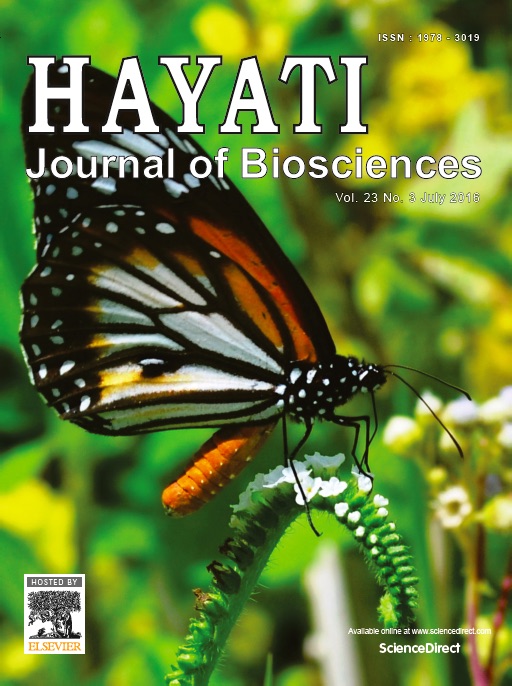Gene Cloning and Protein Expression of Koi Herpesvirus ORF25
Abstract
Koi herpesvirus (KHV) caused significant morbidity and mortality in koi and common carp (Cyprinus carpio). Glycoprotein has been used for vaccine development as sub unit vaccine against many viruses. KHV ORF25 is one of koi herpesvirus genes which encode a glycoprotein. The objectives of this research are to clone gene KHV ORF25and express its protein. The common carp showing necrosis and white patches of gill which was collected from Magelang was used in this research. Primers were designed to amplify partial ORF25 based on KHV J strain. KHV ORF25 was successfully amplified and cloned in pET32a. Sequence analysis showed that this KHV ORF25 has 99% homology with the sequences of KHV genotype KHV-J, KHV-I, and KHV-U. This ORF was predicted has 3, 23, and 8 B-cell epitopes based on Emini scale, Karplus and Schulz scale, and ElliPro respectively. The KHV ORF25 recombinant protein has been successfully produced in Escherichia coli as an insoluble protein with approximately 45 kDa in size. The high protein production was achieved when the protein induction was done at bacterial density at OD600 as 1.0 with 1-mM isopropyl β-D-1-thiogalactopyranoside (IPTG) and incubated at 37°C for 18 hours. The protein predicted has immunogenicity and the potency as a vaccine is needed to be evaluated.Downloads
HAYATI J Biosci is an open access journal and the article's license is CC-BY-NC. This license lets others distribute, remix, tweak, and build upon author's work, as long as they credit the original creation. Authors retain copyright and grant the journal/publisher non exclusive publishing rights with the work simultaneously licensed under a https://creativecommons.org/


















.png) IPB University
IPB University Department of Biology
Department of Biology The Indonesian Biological Society
The Indonesian Biological Society 

